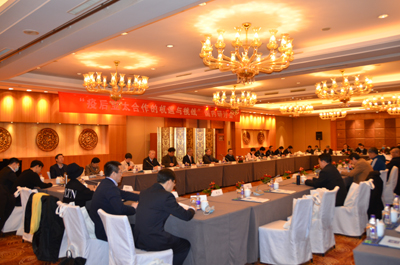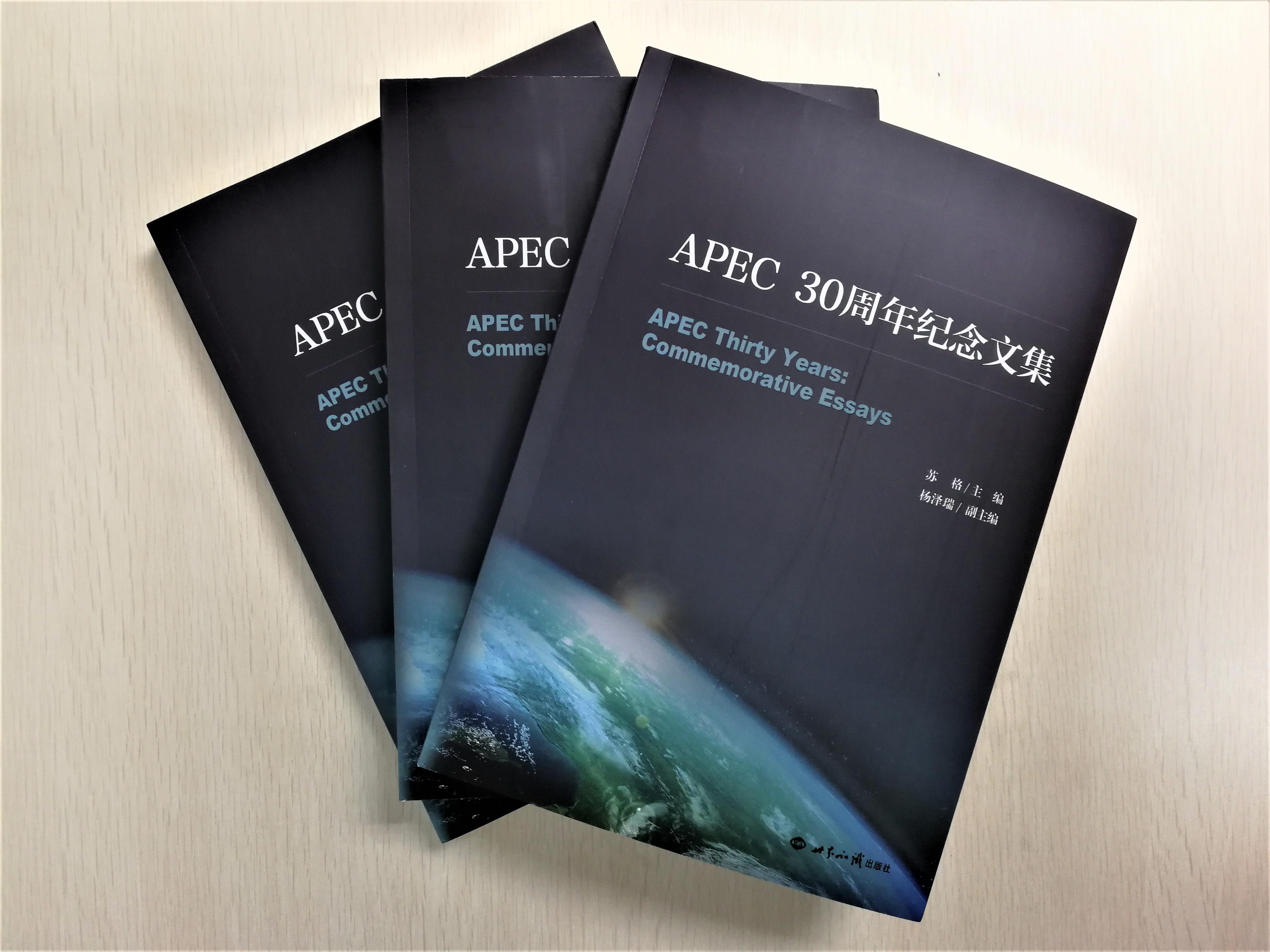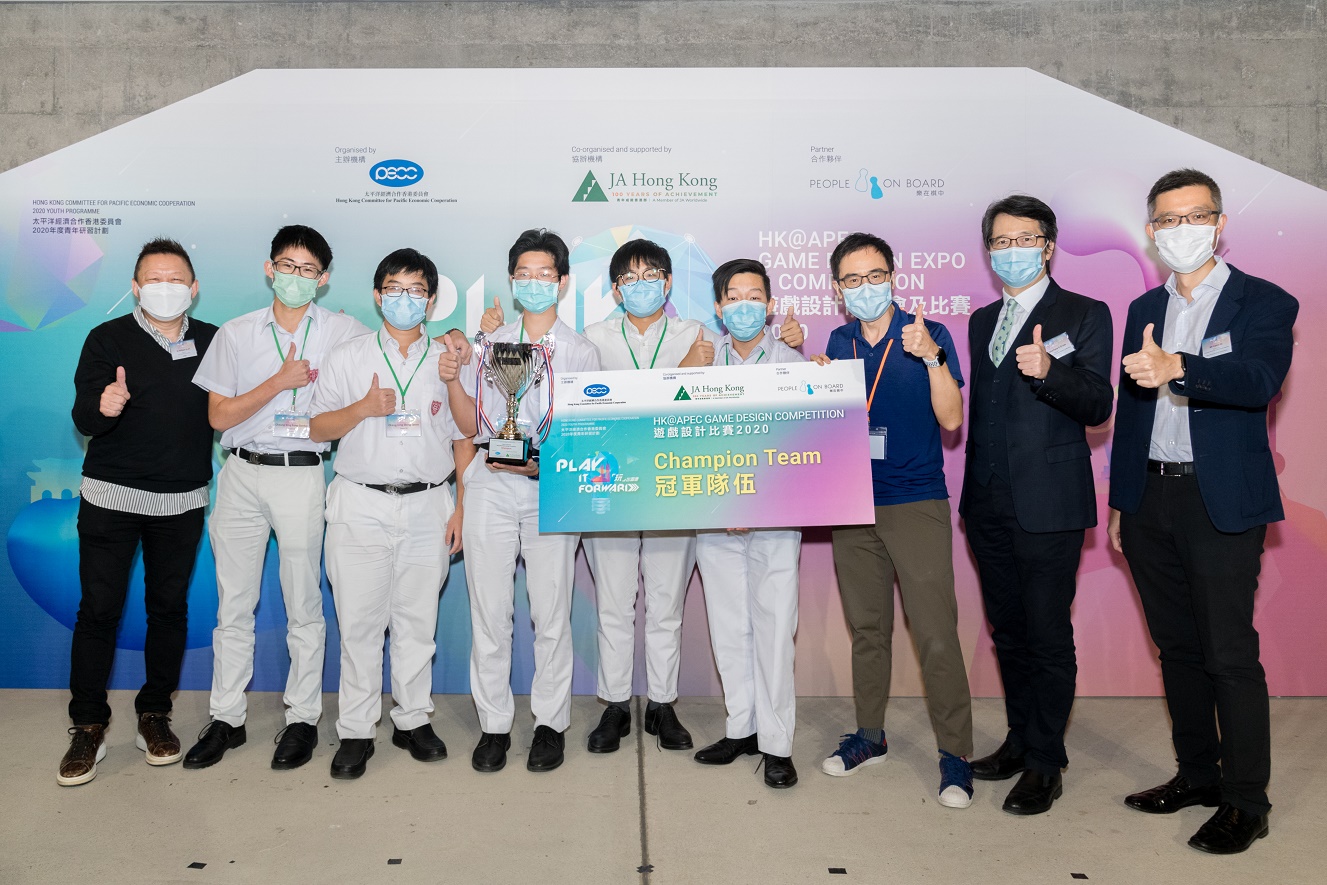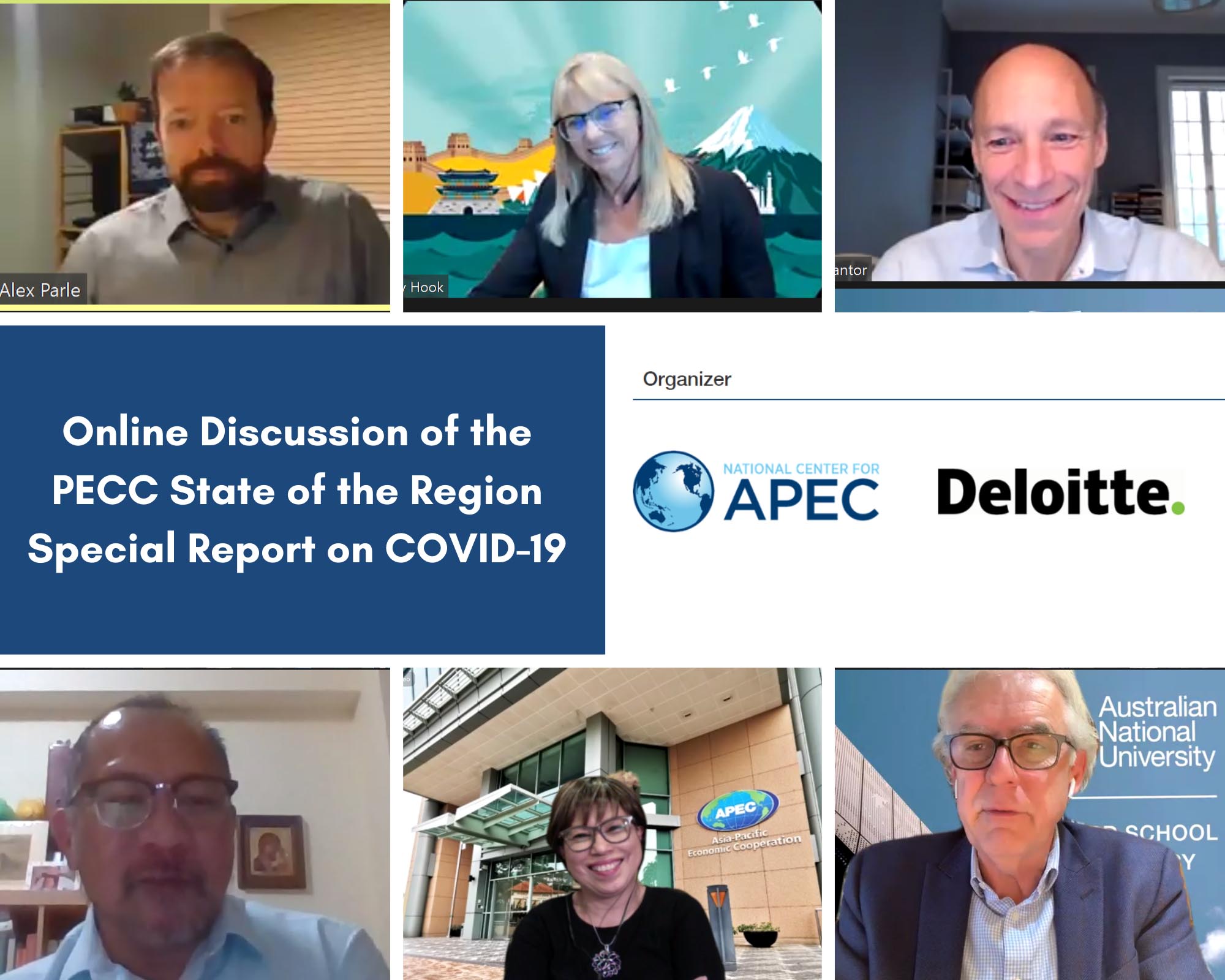LOGISTICS, REGULATORY CHALLENGES FOR COVID-19 VACCINE DISTRIBUTION
Analysis in PECC's latest State of the Region report has found that the distribution of the various vaccines once they are approved is going to require not only enormous transportation resources but vast policy coordination. Moving the "last mile" can be difficult, in places where infrastructure is lacking and it is the hardest to meet requirements for special equipment and training.
While there are naturally hopes that vaccines can be deployed quickly, PECC's report show the ending of the lockdown was not seen as contigent on that one variable; indeed what was considered as most important was the medical capacity to deal with cases. A vaccine came third in the list, indicating a common view it cannot be available very rapidly. Read more ...
THE NEW GENERATION OF 'DIGITAL' TRADE AGREEMENTS: FIT FOR A PURPOSE?
Recent trade agreements have begun including or focusing upon provisions to reduce regulatory barriers in digital trade and facilitate cross-border trade-in-data. However, at a time when digital demand and use are seen to be growing exponentially, and governments are focusing on accelerating their domestic digital economy growth, often accompanied with programs of digital transformation or digital government, regulatory restrictions on international digital trade are growing equally, if not more, rapidly.
Are these emerging FTAs, like their in-existence forerunners, deficient in supporting digital development and inclusion as well as fostering widespread international regulatory cooperation? It is obviously too early to judge what are very worthwhile approaches too harshly. However, as the proliferation of digital
regulatory innovation and restriction illustrates they are very open to both negative and positive interpretation and, thus far, appear unable to facilitate a holistic digital trade regulatory framework given the conflicting domestic privacy and cybersecurity laws among trading partners. Read more ...
PECC 27TH GENERAL MEETING: KEY TAKEAWAYS ON THE IMPACT OF COVID-19 CRISIS
The 27th PECC General Meeting concluded on 17 December 2020. The event was hosted by the Malaysian National Committee for Pacific Economic Cooperation (MANCPEC) on the theme of “Optimizing Human Potential Towards Future of Shared Prosperity and Sustainability in Times of Covid-19.”
Key takeways on the impact of Covid-19 crisis :
- provides an opportunity to address issues such as sustainability and inequality, as well as equalizing opportunities for people.
- the region’s need for “a long-term strategic blueprint that would pave the way for sustained and vibrant growth built on the edifice of a rules-based multilateral trading system that is free, fair and open.”
- the need to mitigate the uncertainty facing the region by highlighting the importance of agreements that provide certainty, for example the Comprehensive and Progressive Agreement for Trans-Pacific Partnership (CPTPP) and the achievement of the Regional Comprehensive Economic Partnership agreement and the idea of ‘concerted open plurilateralism’.
- provides an opportunity to better think about regional-level approaches to climate change, and this fits with enhancing regional integration and regional trade.
- the need for the next generation to be more engaged in decision making on issues that will impact their lives, and on issues that they have different perspectives on such as climate change; remote education and training.
Click here to read more on PECC 27th General Meeting.
PECC SIGNATURE PROJECTS
CNCPEC: Challenges and Opportunities for the Asian Pacific Region in Post Pandemic Era
This signature project is approved by the Standing Committee in December 2020, with NZPECC, TNCPEC as co-sponsors. It is designed for stakeholders in the Asia-Pacific region to concretize the future action plan in post COVID-19 era which in line with the Putrajaya Vision approved by APEC Leaders last month by an in-depth research on possible new formality of the global governance, emerging transformation of the industrial chains/supply chains, pandemic impact on the APEC agenda in post 2020 era and progress and prospects of FTAs/RTAs. The action plan will focus on getting regulations and standards aligned to maintain and facilitate the trade and investment as well as enhance the economic and technological cooperation in the Asian Pacific region.
NZPECC: 2021 Signature Project
The PECC Standing Committee at its meeting in December approved a NZPECC proposal, under its leadership, for a Signature PECC Project in 2021on developing a “ Primer on Economic Integration Issues Posed by the Digital Economy”.
The project recognizes the importance of building a shared understanding of the complex issues arising from the digital economy. The Primer will bring together in a single document the scope of digital issues, and their inter-linkages, that are impacting global trade and economic growth, by, inter alia:
- providing a discussion platform for digital issues with a view to facilitating cooperation on the development of frameworks that will support appropriate regional, plurilateral and unilateral policy and regulatory responses to facilitate trade and economic growth in the region;
- providing a lens through which to support the role the digital economy in supporting a more sustainable future for the region;
- providing a vehicle to consult and work with business on efficient and effective ways to facilitate digital trade in the region;
- providing a vehicle to better assess collective progress.
The Primer, while not championing particular solutions, will be a strong basis to support cooperative discussion, critical analysis, and to assess whether in an increasingly inter-connected digital world, the current regulatory models (rules of the road) are fit for purpose. What might serve the region better?
PECC INTERNATIONAL SEMINAR 2021
FPTPEC
With the current pandemic situation and travel restrictions, FPTPEC will be conducting a virtual seminar instead of a physical seminar for the PECC International Seminar in 2021.
FPTPEC is pleased to announce that in cooperation with the Government of French Polynesia and the University of French Polynesia, a virtual Zoom seminar entitled “Connectivity and Tourism Recovery from Covid-19 in the Asia Pacific: what we learned so far one year later?” to be held on 1-2 June 2021. This seminar will be scheduled for 2 half-days sessions of 2 hours each.
Papers can be submitted to the Chair of FPTPEC Polynesia, Dr Vincent Dropsy (vincent.dropsy@upf.pf).
A second seminar on “Tourism Recovery in the Asia Pacific” is already planned for the spring of 2022.
MEMBER COMMITTEE UPDATES
CNCPEC
Symposium on "Challenges and Opportunities of Asia-Pacific Cooperation in Post-pandemic Era"
 On 22 December 2020, the China National Committee for Pacific Economic Cooperation (CNCPEC) held a symposium on "Challenges and Opportunities of Asia-Pacific Cooperation in Post-pandemic Era" in Beijing. On 22 December 2020, the China National Committee for Pacific Economic Cooperation (CNCPEC) held a symposium on "Challenges and Opportunities of Asia-Pacific Cooperation in Post-pandemic Era" in Beijing.
Honorary Chair Huang Mengfu said that the COVID-19 crisis is still raging around the world, not only causing serious loss of life and property to people all over the world, but also having a major impact on the world economy, security and global development. Read more ...
APEC Thirty Years: Commemorative Essays Published
 On the occasion of the Asia-Pacific Economic Cooperation (APEC) Ministerial Meeting and CEO Dialogues held in December 2020, the APEC Thirty Years: Commemorative Essays edited by Amb. Su Ge, Co-Chair of PECC and Chair of CNCPEC, and contributed by more than 30 outstanding experts and scholars at home and abroad, was officially published. On the occasion of the Asia-Pacific Economic Cooperation (APEC) Ministerial Meeting and CEO Dialogues held in December 2020, the APEC Thirty Years: Commemorative Essays edited by Amb. Su Ge, Co-Chair of PECC and Chair of CNCPEC, and contributed by more than 30 outstanding experts and scholars at home and abroad, was officially published.
The book includes four parts: "APEC and China", "Asia-Pacific Cooperation in the New Era of Globalization", "APEC 30th Anniversary Review and Evaluation", and "APEC Post 2020 Cooperation Agenda". It elaborates on the achievements of APEC over the past 30 years, discusses the APEC Post 2020 cooperation agenda under the rapidly changing global and regional cooperation situation.
As the most important economic cooperation forum in the Asia-Pacific region, APEC was established in November 1989 in Canberra. Over the past three decades, APEC has strongly promoted economic cooperation in the Asia-Pacific region, making the Asia-Pacific region an engine of world economic growth.
HKCPEC
HKCPEC Youth Programme 2020 – a remarkable learning journey

The Hong Kong Committee for Pacific Economic Cooperation (HKCPEC), in collaboration with the Junior Achievement Hong Kong (JA HK), accomplished the 8th edition of HKCPEC Youth Programme amidst the challenges under the Covid-19 pandemic.
The HKCPEC Youth Programme 2020, titled “Play it forward HK@APEC Game Design Competition”, entailed a four-month journey with participation of 105 senior secondary students from 22 schools in Hong Kong. The Programme included a series of seminars, hands-on learning workshops, mentoring sessions and activities with a view to enhancing students’ awareness and understanding of the key issues and trends in regional trade and cooperation. Read more...
NZPECC
Special Issue of the Institute for Governance and Policy Studies, School of Government at Victoria University of Wellington on New Zealand and the Asia-Pacific.
NZPECC would like to draw the attention of PECC stakeholders to the above publication and in particular to three contributions by members of the NZPECC committee.
Brian Lynch, Chair of NZPECC, writes on “Whither APEC post-2020? Centre stage for New Zealand”. The article posits that the priority for the 21 APEC member economies is to agree where the agency’s purpose and work programmes should focus over the next 20 years.
Gary Hawke and Siah Hwee Ang of Victoria University Wellington reflect on the developments and challenges ahead for “Trade and Economic Integration in the Asia Pacific Region”.
Rory McLeod’s article focuses on “Structural Reform, Regulatory Practice and Digital Implications – the APEC Experience”.
The Policy Quarterly can be found at: https://ojs.victoria.ac.nz/pq/index
USPECC
Online Discussion of the State of the Region: Impact of the Covid-19 Crisis Report
 On 6 August 2020, USPECC organized an online discussion on the topics covered in the PECC State of the Region Special Report on the COVID-19 pandemic. Speakers included the SOTR report authors, Eduardo Pedrosa, PECC Secretary-General and Christopher Findlay, Vice-Chair of the AUSPECC. Other speakers included Alex Parle, Executive Vice President of the National Center for APEC, Cindy Hook, CEO of Deloitte Asia-Pacific, Richard Cantor, Chair of US-PECC and Tan Sri Datuk Rebecca Fatima Sta Maria, Executive Director of the APEC Secretariat. On 6 August 2020, USPECC organized an online discussion on the topics covered in the PECC State of the Region Special Report on the COVID-19 pandemic. Speakers included the SOTR report authors, Eduardo Pedrosa, PECC Secretary-General and Christopher Findlay, Vice-Chair of the AUSPECC. Other speakers included Alex Parle, Executive Vice President of the National Center for APEC, Cindy Hook, CEO of Deloitte Asia-Pacific, Richard Cantor, Chair of US-PECC and Tan Sri Datuk Rebecca Fatima Sta Maria, Executive Director of the APEC Secretariat.
The panelists noted the important role of institutions like ABAC and PECC in identifying the practical steps that APEC officials can take to put the region on the path to recovery.
Virtual Fireside Chat: A Policy Agenda for the Asia-Pacific
 USPECC held a virtual fireside chat, "A Policy Agenda for the Asia-Pacific" with Richard Cantor and Jeffrey Sachs on 17 November 2020. Topics included sustainable and inclusive economic growth, US engagement with China, corporate social governance and more. To watch this chat, click here. USPECC held a virtual fireside chat, "A Policy Agenda for the Asia-Pacific" with Richard Cantor and Jeffrey Sachs on 17 November 2020. Topics included sustainable and inclusive economic growth, US engagement with China, corporate social governance and more. To watch this chat, click here.
USPECC Committee Meeting
With the support of the U.S. National Center for APEC, USPECC has gathered twenty-one thought leaders with backgrounds in government, business and academia to serve on the reinvigorated U.S. Committee for the Pacific Economic Cooperation Council. Members participated in a committee meeting on 19 January 2021, for a discussion on priorities for the coming year.
The new committee is looking forward to opportunities to engage with other PECC committees and APEC during this important time in the Asia.
|


 On 22 December 2020, the China National Committee for Pacific Economic Cooperation (CNCPEC) held a symposium on "Challenges and Opportunities of Asia-Pacific Cooperation in Post-pandemic Era" in Beijing.
On 22 December 2020, the China National Committee for Pacific Economic Cooperation (CNCPEC) held a symposium on "Challenges and Opportunities of Asia-Pacific Cooperation in Post-pandemic Era" in Beijing.

 On 6 August 2020, USPECC organized an online discussion on the topics covered in the PECC State of the Region Special Report on the COVID-19 pandemic. Speakers included the SOTR report authors, Eduardo Pedrosa, PECC Secretary-General and Christopher Findlay, Vice-Chair of the AUSPECC. Other speakers included Alex Parle, Executive Vice President of the National Center for APEC, Cindy Hook, CEO of Deloitte Asia-Pacific, Richard Cantor, Chair of US-PECC and Tan Sri Datuk Rebecca Fatima Sta Maria, Executive Director of the APEC Secretariat.
On 6 August 2020, USPECC organized an online discussion on the topics covered in the PECC State of the Region Special Report on the COVID-19 pandemic. Speakers included the SOTR report authors, Eduardo Pedrosa, PECC Secretary-General and Christopher Findlay, Vice-Chair of the AUSPECC. Other speakers included Alex Parle, Executive Vice President of the National Center for APEC, Cindy Hook, CEO of Deloitte Asia-Pacific, Richard Cantor, Chair of US-PECC and Tan Sri Datuk Rebecca Fatima Sta Maria, Executive Director of the APEC Secretariat.  USPECC held a virtual fireside chat, "A Policy Agenda for the Asia-Pacific" with Richard Cantor and Jeffrey Sachs on 17 November 2020. Topics included sustainable and inclusive economic growth, US engagement with China, corporate social governance and more. To watch this chat, click
USPECC held a virtual fireside chat, "A Policy Agenda for the Asia-Pacific" with Richard Cantor and Jeffrey Sachs on 17 November 2020. Topics included sustainable and inclusive economic growth, US engagement with China, corporate social governance and more. To watch this chat, click